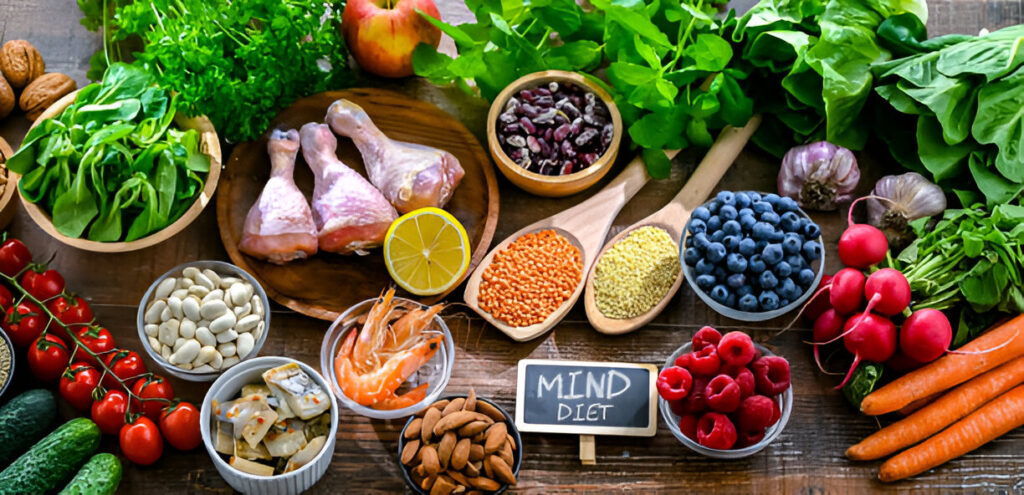Nutrition tips for vegetarian diet plan are very important towards leading a healthy lifestyle for vegetarians. For those of you who are either a newcomer to the world of vegetarianism or have been a vegetarian for a long time, calculating your body’s nutrient intake can be a somewhat daunting endeavour.

Don’t panic, however – this guide will provide the sort of real, useful steps that allow for continued tasty, interesting, and nutritious eating.
There are a massive number of reasons why people decide to go vegetarian, whether for moral reasons, environmental conservation or health. Regardless of why you’ve decided to go meat-free, one thing is clear: However, at a cellular level your body still requires a combination of nutrients to function properly.
Let me show you how that is possible while savouring each bit of your plant-based lifestyle.
Why Vegetarian Nutrition Matters
Change in eating habits to vegetarianism is one of the most effective changes you can ever make in your life. Scientists have learned that the end results of vegetarian diets include lower risks of developing heart diseases, type 2 diabetes, certain types of cancer, and obesity.
But a vegetarian diet doesn’t mean that it’s healthy – it all depends on what and how much you eat.
When you exclude meat from your diet you are also excluding other nutrients such as protein, iron and vitamin B12. Which is why learning these kinds of nutrition tips for vegetarians is important to us.
Fat-soluble vitamins are a special case and there are no problems with obtaining the recommended intake even when eating a tasty meal.
1. Prioritize Plant-Based Protein
The most common thing people think of when going vegetarian is proteins. Fortunately there are a good number of plant based proteins that are suitable for your meals.
- Legumes: Cereals, pulses and legumes are cheap, easily available and are also sources of protein.
- Tofu & Tempeh: The products from soya are not only protein values but also bear all the essential amino acids.
- Quinoa: This pseudo-cereal is a good source of protein and it is considered to be containing all the nine essential amino acids.
- Nuts & Seeds: Apples, almonds, banana, chia seeds and hemp seeds are high in protein; they are snacks or accompanies food preparations.
If you include a number of these foods in your diet, you will be shocked to find out that you are able to get your daily protein fix without necessarily having to compound it with meat.
2. Don’t Forget About Iron
Iron is another critical nutrient that vegetarians need to watch closely. While plant-based iron (non-heme iron) isn’t absorbed as efficiently as animal-based iron, there are ways to enhance its absorption.
Here’s how:
- Pair Iron-Rich Foods with Vitamin C: Foods like spinach, kale, and lentils are rich in iron. When paired with vitamin C-rich foods like oranges, bell peppers, or tomatoes, iron absorption improves significantly.
- Avoid Drinking Tea or Coffee with Meals: These beverages contain tannins that can inhibit iron absorption. Instead, enjoy them between meals.
- Consider Iron-Fortified Foods: Some cereals and plant-based milk are fortified with iron, making them an excellent addition to your diet.
Following these nutrition tips for vegetarians can help prevent iron deficiency, keeping your energy levels high and your body functioning optimally.
3. Get Enough Vitamin B12

Vitamin B12 is a nutrient that’s almost exclusively found in animal products. As a vegetarian, you may need to put in extra effort to get enough.
Where to find Vitamin B12:
- Fortified Foods: Plant-based milk, breakfast cereals, and nutritional yeast are often fortified with B12.
- Supplements: Taking a B12 supplement is a reliable way to ensure you meet your daily needs.
- Regular Blood Tests: It’s a good idea to check your B12 levels periodically and adjust your intake if necessary.
4. Embrace Healthy Fats
These fats are necessary for the proper functioning of the brain, regulation of hormones and good digestion. Vegetarians thus physically take less unhealthy saturated fats commonly found in animal products, but they should ensure they take the right fats.
Best sources of healthy fats for vegetarians:
- Avocados: Rich in monounsaturated fats and contains fiber.
- Nuts & Seeds: Omega 3 rich foods, such as almonds, walnuts, flaxseeds and chia seeds must be included in the diet.
- Olive Oil: An unsaturated fat that can be eaten as an accompaniment to most foods or included in salads.
- Coconut Products: They’re higher in saturated fat, but can be a great part of your diet in small quantities.
A lot of these fats benefit your health, whilst making food tastier and more fulfilling to eat.
5. Focus on Calcium and Bone Health
Calcium is vital for building healthy bones and teeth, but most people think of it purely in relation to dairy foods. On this painful note, it might come as a relief to learn that vegetarians are not completely out of luck for calcium; there are also many plant-based sources.
Top plant-based calcium sources:
- Leafy Greens: In a similar angle, kale, and collard greens for that matter, together with bok choy are very rich sources of calcium and are very nutritious.
- Fortified Plant-Based Milk: Several almond, soy and oat milk brands are calcium and vitamin D-fortified.
- Tofu: Some types of tofu contain calcium sulfate and therefore are a good source of calcium.
- Almonds: It goes without saying that a handful of almonds can help to increase calcium intake while getting a helpful boost of fats and protein.
6. Keep Your Meals Balanced and Colorful
One of the simplest yet most effective nutrition tips for vegetarians is to eat a rainbow. By incorporating a variety of colorful fruits and vegetables into your meals, you’re ensuring a diverse intake of vitamins, minerals, and antioxidants.
Benefits of eating a colorful diet:
- Red (Tomatoes, strawberries): Rich in lycopene and vitamin C.
- Orange (Carrots, sweet potatoes): Packed with beta-carotene, which supports eye health.
- Yellow (Bell peppers, corn): High in vitamin C and antioxidants.
- Green (Spinach, broccoli): Loaded with iron, calcium, and fiber.
- Purple (Eggplants, blueberries): Contain anthocyanins, which have anti-inflammatory properties.
7. Stay Hydrated
Hydration is often overlooked but plays a vital role in overall health. Water aids digestion, regulates body temperature, and helps transport nutrients throughout the body.
How to stay hydrated:
- Drink water consistently throughout the day, not just when you’re thirsty.
- Include water-rich foods in your diet, such as cucumbers, watermelon, and leafy greens.
- Limit diuretics like caffeine and alcohol, which can dehydrate you.
8. Meal Prep for Success

Another good strategy that would help you fulfill your nutritional requirement is to decide and set a plan on what you are going to eat at each meal time of the day. Meal prepping can help you:
- Save Time: By cooking in bulk, time spent in the kitchen during much of the week is minimized especially during the weekdays.
- Ensure Balanced Meals: Since you must take several nutrient rich foods in a day, it is better to plan in advance so that they can all fit on your plate.
- Avoid Unhealthy Choices: Both ready-to-eat meals and breakfast make it easy to avoid scraps and fast foods that one is likely to grab.
Conclusion
By adhering to these nutrition tips for vegetarians, you will be on the right track of getting your daily nutrient requirements that are so vital in your body.
So DO NOT underestimate the quantity – try various plant based foods, get creative with recipes and pay attention to your body.
So by organizing and thinking through the possibilities the vegetarian diet is not only possible but enjoyable at every moment.
First-timers do not have to worry, set an appointment with a nutritionist or a dietitian that is well-versed with plant-based nutrition.
They can advise you what you need to do in order to have a good design placement and help set you on course.
Vegetarian primarily relates to the decision to not consume meat is not just about not eating meat but a complete change in an overall way of living. Happy eating!







